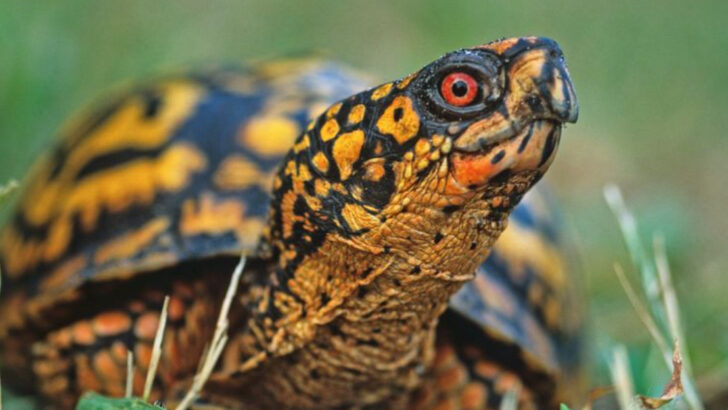Turtles are the unsung heroes of garden ponds—silent, serene, and oh so charming. They not only bring an air of tranquility to your outdoor space but also play a crucial role in maintaining the health of your pond’s ecosystem.
From their slow, graceful movements to their unique personalities, turtles can transform your pond into a captivating haven. These creatures are not just beautiful to look at, but they also keep your pond balanced, feasting on algae and small pests while adding a dash of character.
With so many different breeds to choose from, finding the right turtle for your garden pond is easier than you think. Whether you’re drawn to their striking shells or the way they effortlessly glide through the water, each breed offers something special.
Let’s dive into 14 turtle breeds that will thrive in your outdoor pond and become the perfect companions for your peaceful garden retreat.
Red-Eared Slider
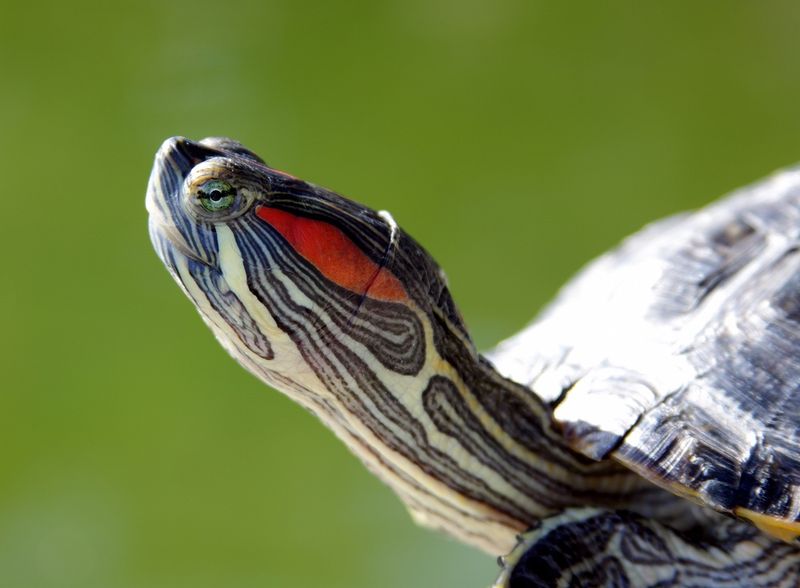
Known for their distinctive red marks on either side of their heads, red-eared sliders are a popular choice for garden ponds. These turtles are gregarious and adapt well to various environments.
They love basking in the sun, providing a delightful spectacle as they stretch their necks and limbs. Red-eared sliders require a spacious pond with plenty of basking spots and clean water.
A fun fact: they can recognize their owner’s voice and footsteps! Regular feeding and monitoring of their health ensure they thrive in an outdoor setting.
Painted Turtle
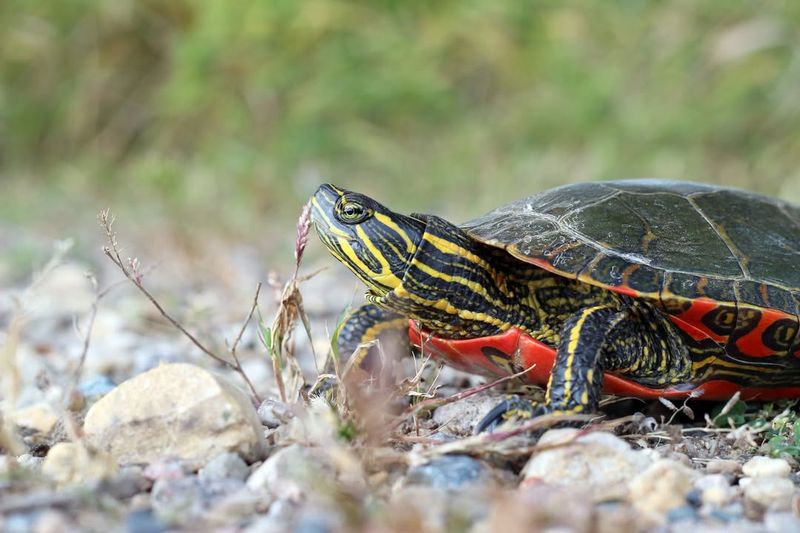
Painted turtles, with their vibrant shell markings, are like living art in your garden pond. Their shells display a beautiful blend of orange, yellow, and red, making them stand out.
These turtles are known for their friendly nature and can live comfortably with other aquatic species. They enjoy sunbathing and require a pond with ample sunlight and clean water.
Painted turtles are a joy to watch as they glide effortlessly through the water or perch on rocks. They are low-maintenance and perfect for beginners.
Northern Map Turtle
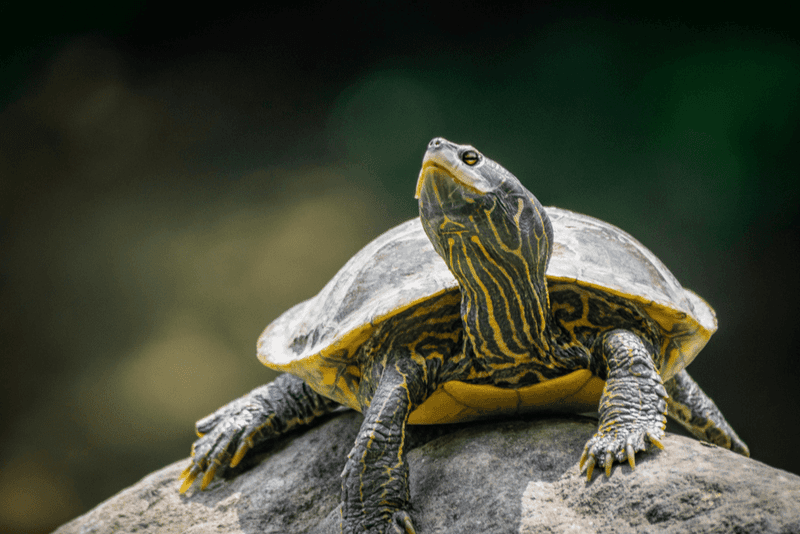
The Northern Map Turtle is a captivating breed with shell patterns reminiscent of a topographical map. These turtles are active swimmers and require a spacious pond with clean water.
They are shy creatures but can become accustomed to their surroundings over time. Northern Map Turtles thrive in ponds that mimic their natural habitat with plenty of plants and basking areas.
They are omnivorous, feeding on aquatic plants and small insects. Their unique shell design adds an exotic touch to any garden pond.
Yellow-Bellied Slider
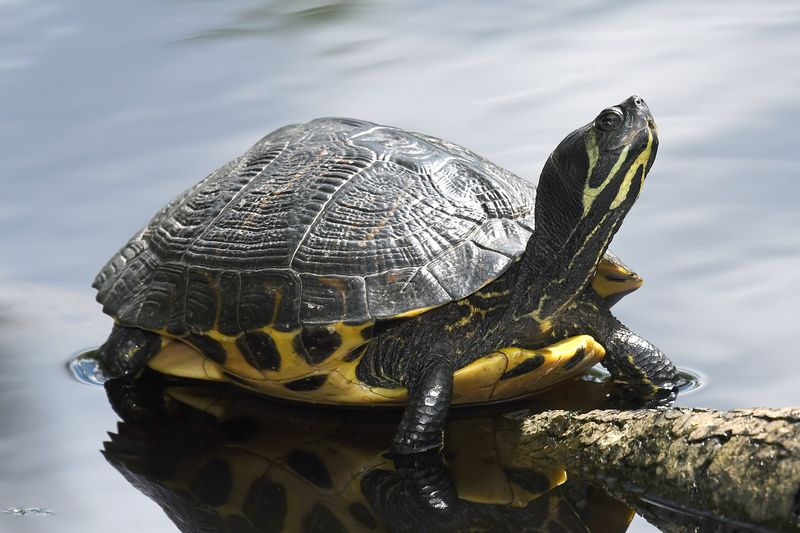
Yellow-Bellied Sliders are charming turtles with distinctive yellow markings. Their playful nature and adaptability make them a favorite among pond enthusiasts. These turtles thrive in ponds with ample sunlight and clean water.
They enjoy basking and are often seen stacked on rocks or logs. Yellow-Bellied Sliders are social creatures and do well in groups. They require a balanced diet of vegetables and protein.
Their bright coloration and lively behavior make them a delightful addition to outdoor ponds.
Common Musk Turtle
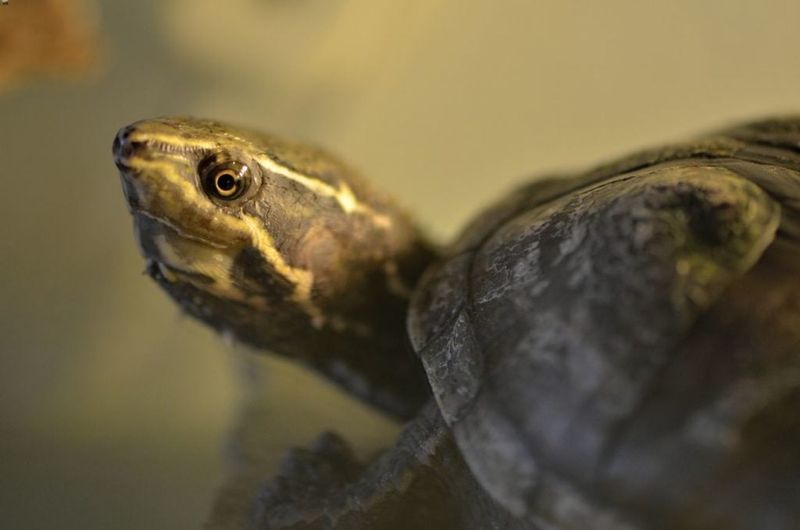
Common Musk Turtles, often called ‘stinkpots’, are small but full of character. They thrive in shallow ponds with plenty of hiding places.
These turtles are nocturnal and prefer to stay hidden during the day, making them perfect for those who enjoy observing wildlife at dusk. Musk Turtles are easy to care for and have a unique defense mechanism—the ability to release a musky odor when threatened.
Their small size and curious nature make them a fascinating addition to any pond.
Reeves’ Turtle

Reeves’ Turtles are small but mighty, known for their resilience and adaptability. They have a sleek, dark shell with subtle yellow stripes on their heads.
These turtles thrive in ponds with gentle water flow and lots of vegetation. Reeves’ Turtles are active and curious, often exploring their environment.
They are omnivorous, enjoying a diet of plants, insects, and fish. Their hardy nature and appealing appearance make them ideal for garden ponds. A serene pond with aquatic plants is their perfect home.
Eastern Box Turtle
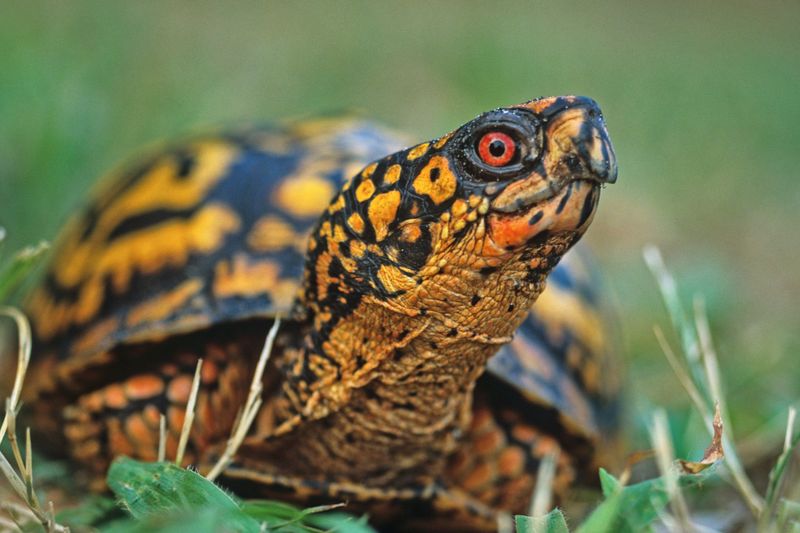
Eastern Box Turtles are terrestrial, but they enjoy a swim in shallow water. Their domed shells come in beautiful shades of brown with yellow or orange patterns.
These turtles are known for their long lifespan and unique ability to close their shells completely. They thrive in a pond environment that offers both land and water access, with plenty of vegetation.
Eastern Box Turtles have a varied diet, including fruits, vegetables, and insects. Their colorful shells and gentle demeanor make them a delightful sight in any garden.
Spotted Turtle
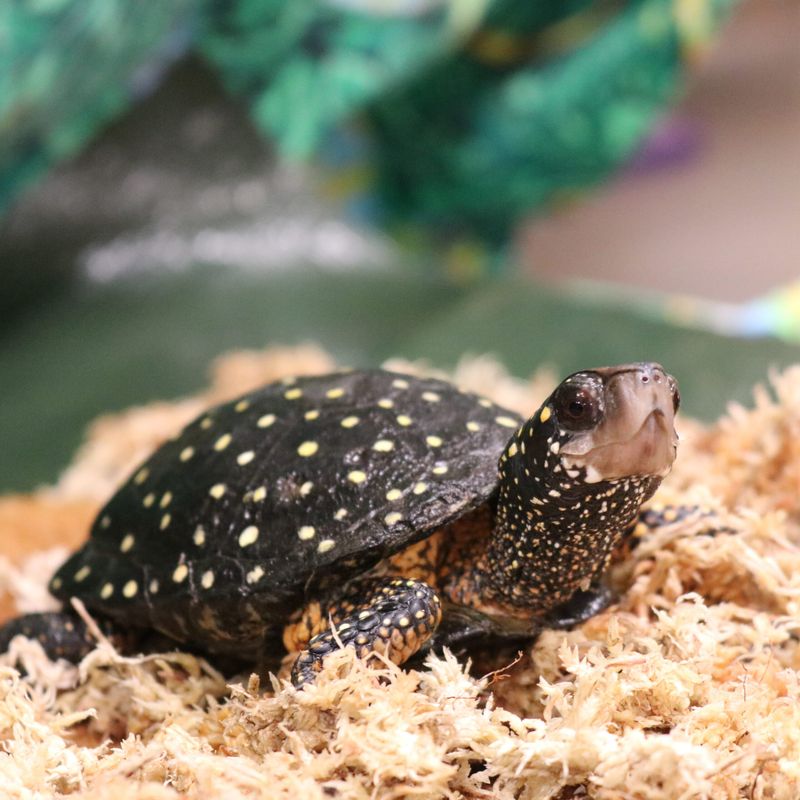
Spotted Turtles are small, charming creatures with distinctive yellow spots on their dark shells. These turtles thrive in ponds with shallow water and abundant vegetation.
They are semi-aquatic and prefer environments that allow them to bask and forage. Spotted Turtles are known for their gentle nature and intriguing appearance.
They enjoy a diet of insects, crustaceans, and plant matter. Their striking appearance and adaptable nature make them a favorite among pond enthusiasts. Watching them explore the pond is a true delight.
Cooter Turtle
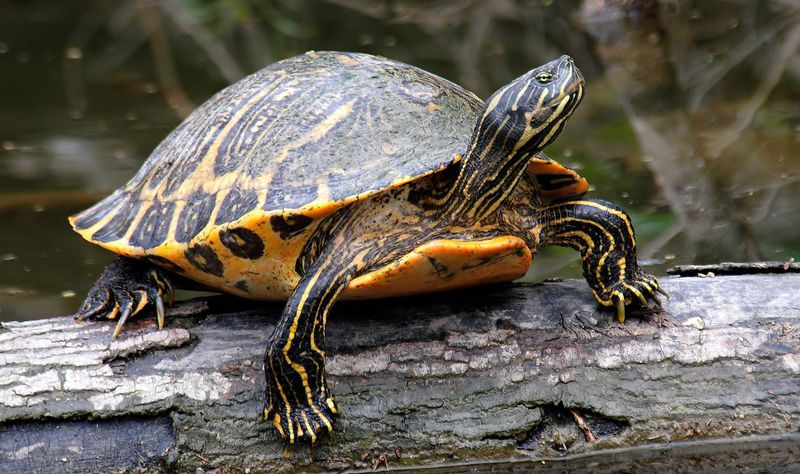
Cooter Turtles are known for their large size and vibrant coloration. Their shells have intricate patterns that vary among individuals. These turtles are herbivores, enjoying a diet primarily of aquatic plants.
Cooter Turtles require a large pond with plenty of swimming space and basking areas. They are social creatures and can often be seen basking in groups.
Their active nature and striking appearance make them a captivating presence in any garden pond. Regular cleaning and maintenance of the pond ensure their well-being.
Wood Turtle
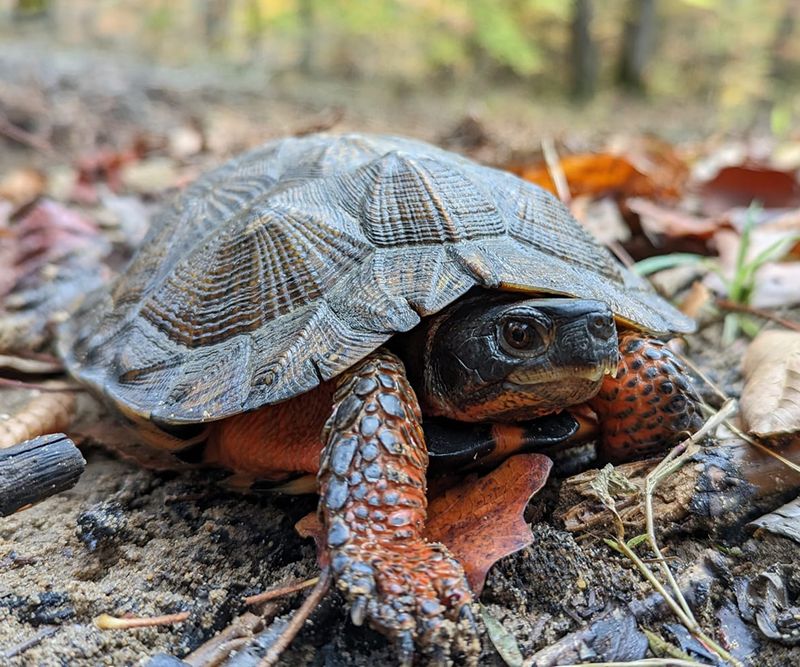
Wood Turtles are named for their sculpted shells that resemble carved wood. These turtles are semi-aquatic, enjoying both land and water environments. They thrive in ponds with plenty of vegetation and hiding spots.
Wood Turtles are curious and intelligent, known for their problem-solving abilities. They have a varied diet, including insects, berries, and fungi.
Their unique appearance and engaging behavior make them a fascinating addition to any pond. A well-maintained pond with diverse flora is ideal for these turtles.
Diamondback Terrapin
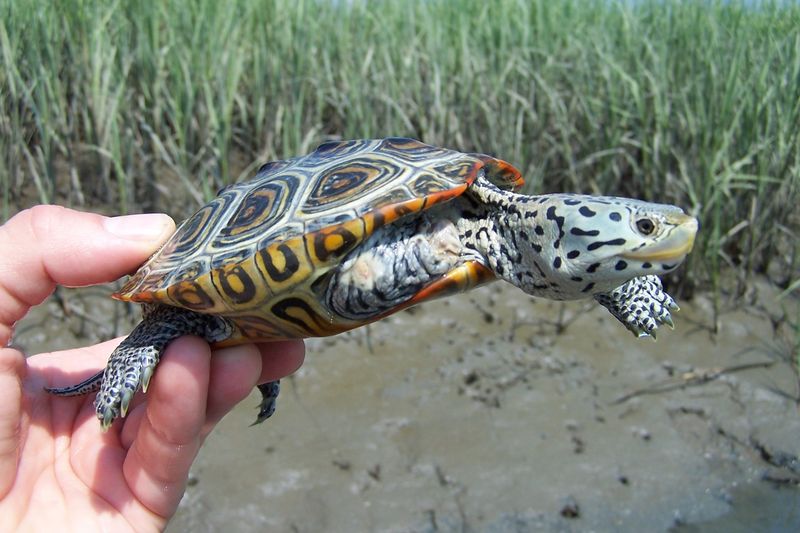
Diamondback Terrapins are striking turtles with diamond-shaped patterns on their shells. They are native to brackish coastal waters but adapt well to freshwater ponds.
These turtles require a pond with both land and water areas, along with clean, slightly salty water. Diamondback Terrapins are omnivorous and enjoy a varied diet.
They are known for their resilience and adaptability. Their unique shell design and captivating swimming style make them a standout choice for garden ponds. Providing a balanced habitat is key to their success.
Western Pond Turtle
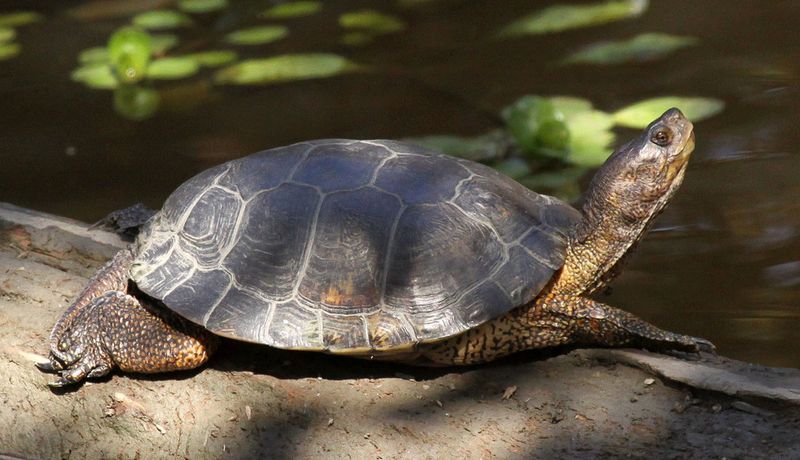
Western Pond Turtles are native to the western United States and thrive in ponds with abundant vegetation. They are adaptable and can live in various aquatic environments.
These turtles require clean water and ample basking spots. Western Pond Turtles are omnivorous, feeding on insects, aquatic plants, and small fish.
Their understated beauty and gentle nature make them a wonderful addition to any pond. Ensuring a well-balanced ecosystem with plenty of hiding places will help them flourish.
Florida Softshell Turtle
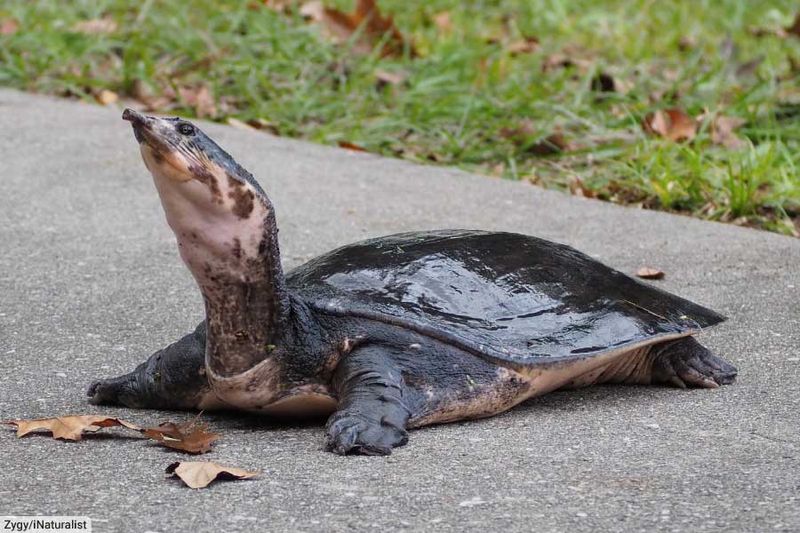
Florida Softshell Turtles are known for their distinctive soft, leathery shells and snorkel-like noses. They are active swimmers and prefer ponds with sandy or muddy bottoms.
These turtles are carnivorous, feeding on fish, insects, and amphibians. Florida Softshell Turtles require a spacious pond with clean water and areas to bask.
Their unique appearance and active lifestyle make them an intriguing addition to any garden pond. Providing a varied diet and ample swimming space will keep them healthy and content.
Snapping Turtle
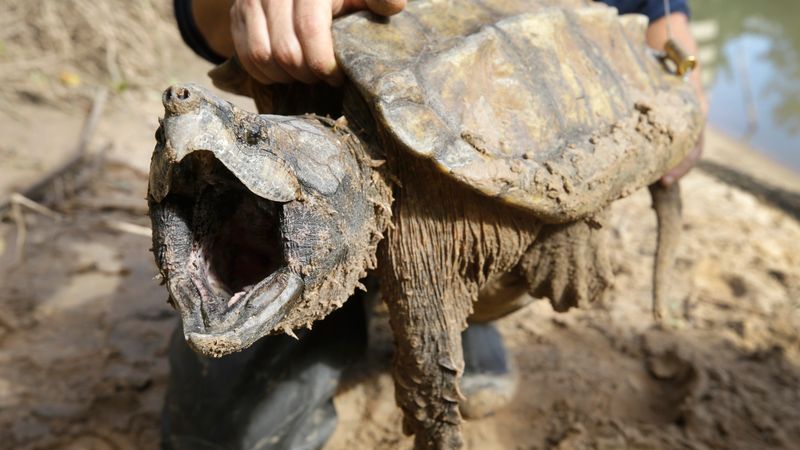
Snapping Turtles are robust creatures with a fearsome reputation, but they can be fascinating pond inhabitants. They have a rugged appearance with strong jaws and a long tail.
Snapping Turtles prefer ponds with deep water and plenty of cover. They are omnivorous and have a varied diet. While they may appear intimidating, they are generally shy and prefer to avoid confrontation.
Snapping Turtles add an element of wild beauty to a garden pond. Ensuring a naturalistic habitat with ample hiding places will support their well-being.

